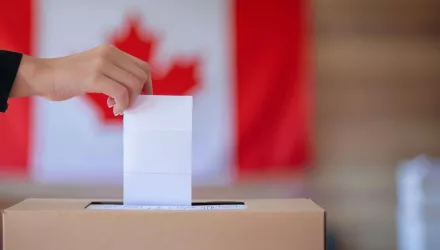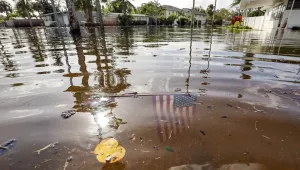On Christmas Day, a 23-year-old Nigerian engineering student allegedly tried to destroy an airplane flying into Detroit. One week ago, an American citizen of Pakistani origin allegedly attempted to detonate a car bomb in New York's Times Square. Neither effort succeeded -- not because U.S. authorities intercepted the attackers, but because the bombmaking skills of the wannabe terrorists were lacking.
In both instances, much of the subsequent debate has centered on how the attacks were able to get as far as they did. The unfortunate fact is that such cases represent a kind of terrorism that is virtually impossible to disrupt. These attempts will continue, and from time to time one of them will succeed, with many dead and injured. The more relevant question, therefore, is: How will we respond when that car bomb does go off?
The reason such attacks are hard to stop is rooted in the identity of the attackers. They often seem to be successful or well-educated members of society, uninvolved in any form of radicalism. But then, the drip-drip of terrorist propaganda -- either on the Internet or circulated through friends -- has its effect. They quietly make contact with radical groups overseas, perhaps even traveling abroad for training and indoctrination. They throw away the life they have made in the West and agree to stage an attack. Faisal Shahzad, the alleged Times Square terrorist, fits that profile, as have others in the United States and Europe.
For U.S. intelligence and law enforcement authorities, these newly minted terrorists are the hardest to stop. They may not be part of any known cell; there is no reason for their phones or e-mail accounts to come under surveillance. When they buy rifles, handguns, tanks of propane gas or fertilizer, they are doing nothing out of the ordinary in American society.
If they succeed in inflicting harm on us with terrorist acts designed to rivet media and public attention, our political debate may once again be as wrongheaded as it will be predictable. Some elected officials will claim that their party would have done a much better job protecting the country. Critics of America's Middle East policy -- or our energy policy, or our foreign policy writ large -- will also fault whatever administration is in power.
If the attackers were trained in a foreign country, some Americans will advocate bombing or invading that nation (even though our large military interventions are the reason some people become terrorists). Commentators who do not place a high value on civil liberties will advocate ethnic profiling, warrantless wiretapping, detention without trial or the abandonment of our court system. Others will contend that we should spend even more taxpayer money on the nation's homeland-security-industrial complex. Above all, many will say, the attack will "prove" that our counterterrorism efforts have been feckless.
In short, opportunists will cynically use the attack to pursue agendas that far predated it. Some of their proposals will already have been tried and discredited, or discovered to be largely irrelevant or counterproductive. Still, old arguments will be dusted off to see if they gain traction in the wake of the carnage.
In the raw aftermath of a successful attack, it will be very hard for an American president to shift the debate in a more productive and honest direction. Imagine if, after a fatal attack, President Obama responded by proposing greater outreach to Muslim communities domestically and around the world, in an effort to undercut radicalization. That is precisely what we and other nations should be doing, but it would undoubtedly be decried as a weak, starry-eyed reaction by our commander in chief, especially after an attack that revealed deficiencies in our counterterrorism system.
But right now, after a near-miss, there is a better opportunity to adjust than in an emotionally charged period when the nation is mourning. Though a good dose of political courage would still be required, it would constitute a major improvement to our debate if leaders could come together now and agree on a few key points about our efforts to battle terrorism:
First, no matter how good a job our government does in protecting the homeland, we must anticipate that someday another terrorist may succeed. If that happens, we will refine our tactics and procedures, but we will not overreact.
Second, we appreciate the hard work and dedication of the civil servants and appointed officials who spend their lives protecting us at home. We will reject politicians and commentators who automatically make counterterrorism officials the whipping boy after an attack.
Third, it is an objective and undeniable fact that U.S. counterterrorism efforts have reduced the overall threat from what it was a few years ago. So we must not assume that a successful attack indicates that our antiterrorism efforts have, on balance, failed. We will hold on to what is working and be agile in response to evolving threats.
Fourth, eliminating the current terrorist threat will take a generation of diligent effort; we must rebut those who demand overnight success. In addition to capturing and killing people who are already terrorists, we have to do the time-consuming and less glamorous work of defeating radical Islamist ideology in the battle of ideas.
Fifth, as willing as we may be to pay a high price to rid ourselves of terrorism, throwing more money at the problem or abandoning our civil liberties and way of life will not reduce the threat, nor will it accelerate the day when it disappears.
Sixth, in an attempt to show that we are doing something new after an attack, we should not adopt procedures that inconvenience the public more than they do the terrorists and amount to little more than security theater.
Seventh and finally, let us warn now that those who seek political gain from the murder of Americans will be regarded as despicable -- whether they are the terrorists who carry out the attacks or the politicians who seek partisan benefits from them.
Richard A. Clarke served as national coordinator for security and counterterrorism in the Clinton White House.
From the archives: Richard A. Clarke's most recent Outlook essay was "Cheney and Rice Remember 9/11. I Do, Too." (May 31). For recent Outlook coverage of terrorism, see Stephen Flynn's "5 myths about keeping America safe" (Jan. 3), Bruce Hoffman's "Al-Qaeda's new grand strategy" (Jan. 10) and Jessica Stern's "5 myths about who becomes a terrorist" (Jan. 10).
Clarke, Richard. “When the Car Bomb Goes Off.” The Washington Post, May 9, 2010





